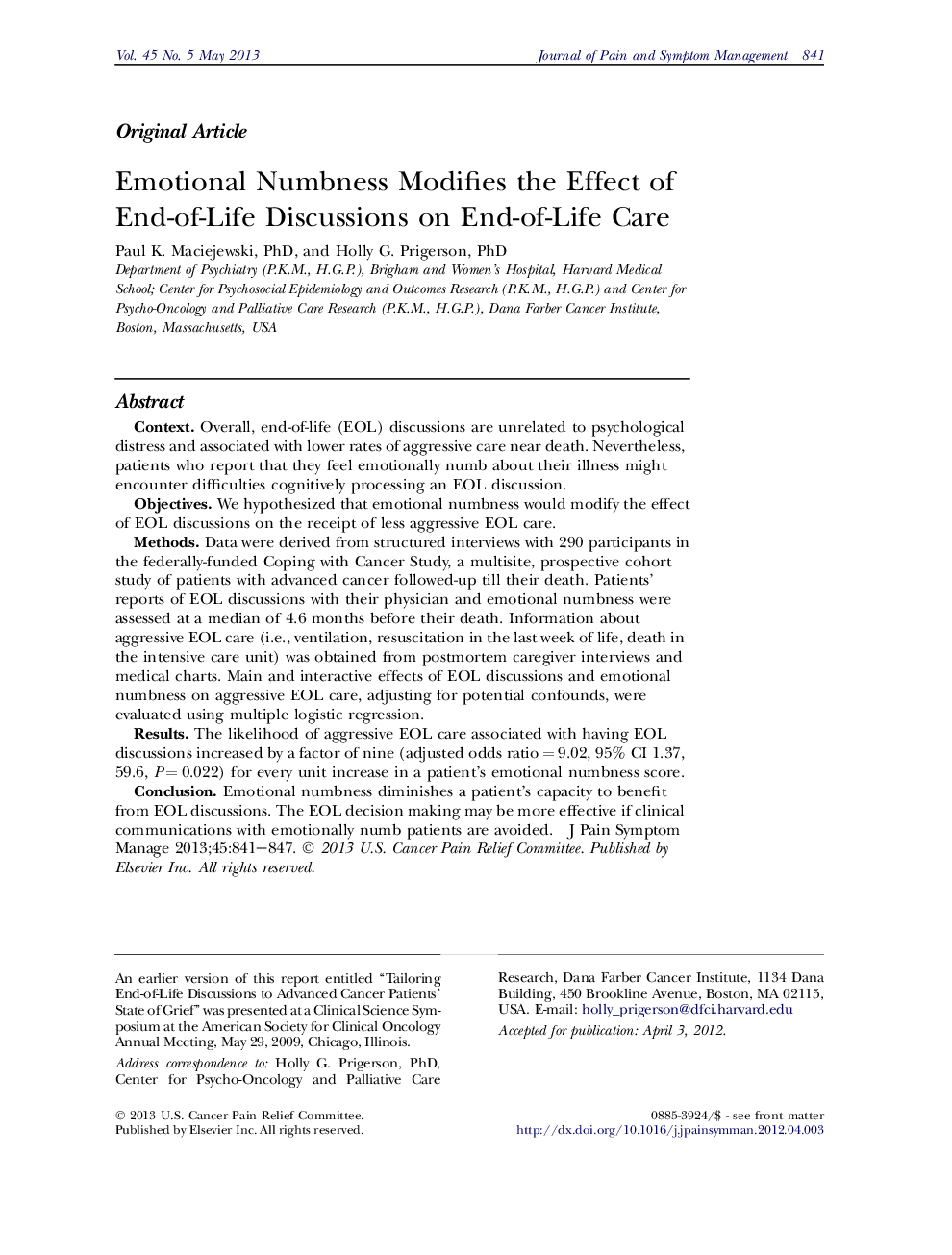| Article ID | Journal | Published Year | Pages | File Type |
|---|---|---|---|---|
| 2734186 | Journal of Pain and Symptom Management | 2013 | 7 Pages |
ContextOverall, end-of-life (EOL) discussions are unrelated to psychological distress and associated with lower rates of aggressive care near death. Nevertheless, patients who report that they feel emotionally numb about their illness might encounter difficulties cognitively processing an EOL discussion.ObjectivesWe hypothesized that emotional numbness would modify the effect of EOL discussions on the receipt of less aggressive EOL care.MethodsData were derived from structured interviews with 290 participants in the federally-funded Coping with Cancer Study, a multisite, prospective cohort study of patients with advanced cancer followed-up till their death. Patients' reports of EOL discussions with their physician and emotional numbness were assessed at a median of 4.6 months before their death. Information about aggressive EOL care (i.e., ventilation, resuscitation in the last week of life, death in the intensive care unit) was obtained from postmortem caregiver interviews and medical charts. Main and interactive effects of EOL discussions and emotional numbness on aggressive EOL care, adjusting for potential confounds, were evaluated using multiple logistic regression.ResultsThe likelihood of aggressive EOL care associated with having EOL discussions increased by a factor of nine (adjusted odds ratio = 9.02, 95% CI 1.37, 59.6, P = 0.022) for every unit increase in a patient's emotional numbness score.ConclusionEmotional numbness diminishes a patient's capacity to benefit from EOL discussions. The EOL decision making may be more effective if clinical communications with emotionally numb patients are avoided.
